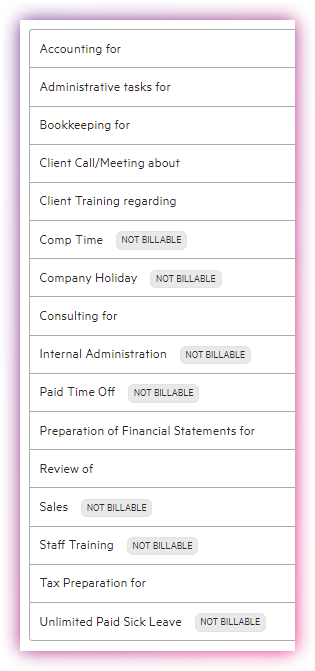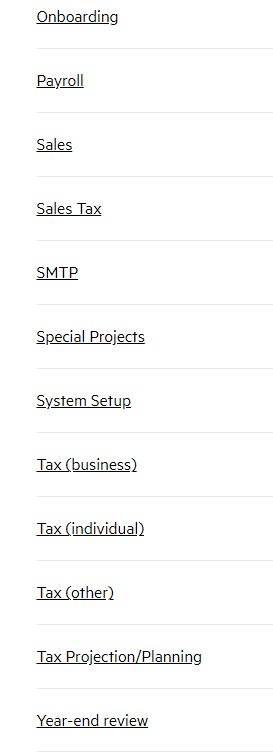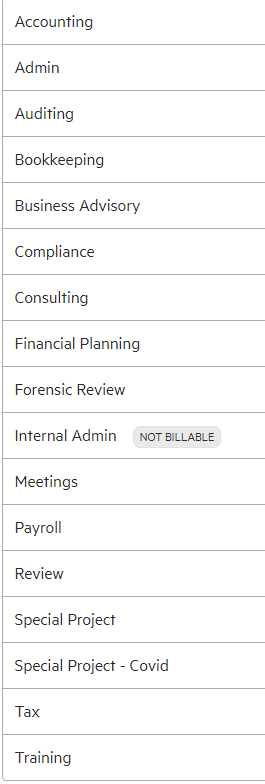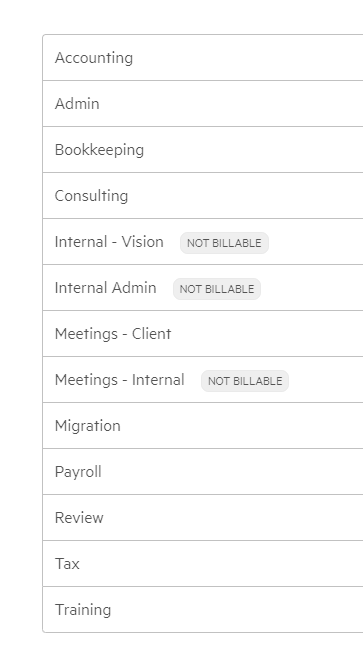I would like to see how other peer firms here use Work Type and Task Type, What scenario are each of these two types used for what purpose? and how to setup these two types to avoid overlapping.
I currently set up more than more than 10 internal work type (non-chargeable, for internal management, like marketing, HR, finance etc.) and more than 10 internal tasks type (similar to work type). I want to cut task type to “chargeable” and “non-chargeable”. not sure if that will cause any useful report having less data.


















